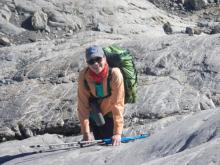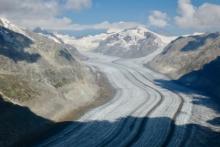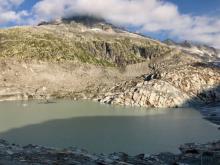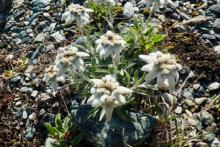Update
Now Archived! PolarConnect event with Lauren Adamo Neitzke and the research team on Sliding Glaciers from an overlook of the Rhone glacier in Switzerland on Thursday, 23 August 2018. You can access this and other events on the PolarConnect Archives site.
What Are They Doing?
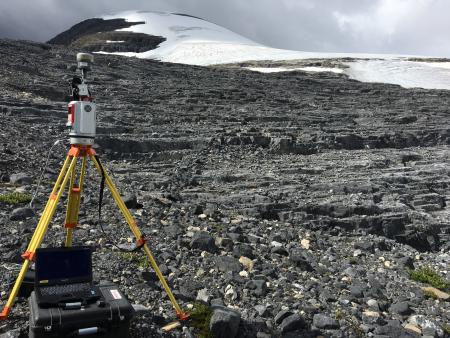
Where Are They?
 The forefield of Tsanfleuron, one of glaciers where the team will be working.
The forefield of Tsanfleuron, one of glaciers where the team will be working.
Latest Journals

Neal Iverson is the Smith Family Foundation Chair of the Department of Geological and Atmospheric Sciences at Iowa State University. His research is devoted primarily to understanding glaciers and the spectacular imprint they leave on the landscape. Glacier dynamics and landscape modification are particularly sensitive to processes at glacier beds, which is the focus of much of his effort.
This research involves field experiments at modern glaciers, field measurements in formerly glaciated landscapes, laboratory experiments, and the formulation of models aimed at characterizing glacial processes. He and some of his former students are the 2012 recipients of the Kirk Bryan Award, given by the Geological Society of America for research that advances the field of geomorphology. More information about Dr. Iverson can be found here

Lucas (Luke) Zoet is an Assistant Professor in the Department of Geoscience, and holds an appointment in Geological Engineering at the University of Wisconsin-Madison. His research largely focuses on understanding the physics of glacier motion through field observation, laboratory experiments, and theoretical analysis. His work largely sits at the intersection of glaciology and glacial geology. He uses a variety of geophysical and geological methods to explore glacial processes at both modern-day glaciers and landforms left behind by since melted glaciers.

